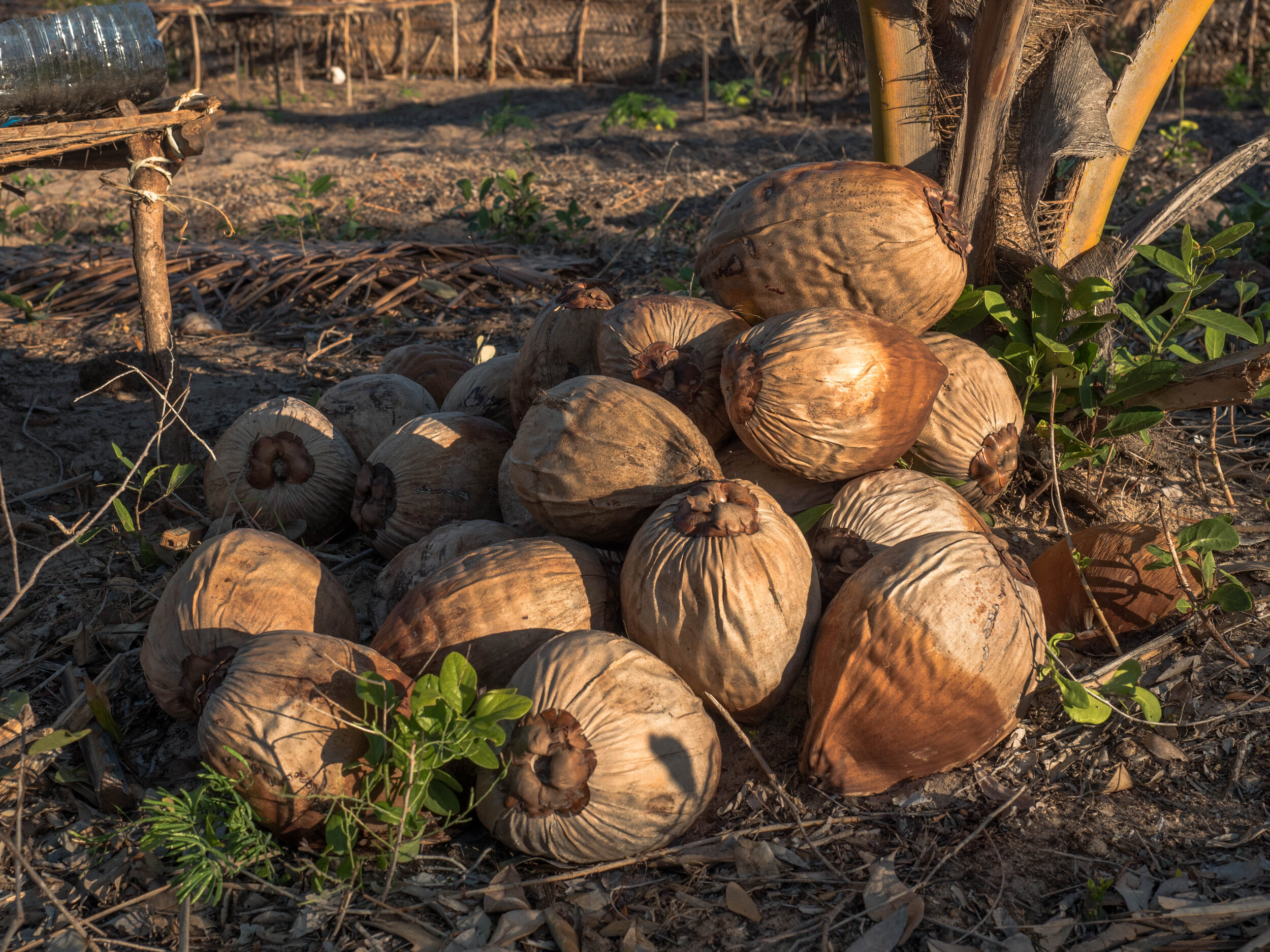
Clean-Burning Coconut Charcoal
A key to sustainable development is utilizing existing resources and repurposing waste materials. For example, in Mozambique, coconuts are plentiful and a significant source of food. However, the husks of the coconut were seen as garbage and discarded. But coconut husks are not garbage.
In Mozambique, most households burn firewood for cooking. While effective, this method poses many health and environmental hazards:
Burning wood indoors creates carcinogenic smoke. In fact, according to the World Health Organization, indoor air pollution is the leading cause of premature death in developing countries.
Unregulated logging is the main contributor to deforestation in old-growth forests.
Women spend hours a day gathering wood for cooking, preventing many girls and young women from getting an education.
Knowing this, Fanny and Mila were determined to find a better way. So after speaking with local women in the village, they designed a simple system using old paint buckets for turning coconut husks into charcoal. Unlike fuelwood, coconut charcoal is clean-burning, food-grade, and has fast lighting times with minimum smoke.
They built their prototype using local materials and gave the village plans so that others could duplicate their design. Project Vita is now in the planning stage of building a commercial enterprise to sell the village’s excess charcoal production.
Typical fuelwood charcoal sold at a roadside stand, Quelimane, Mozambique.
